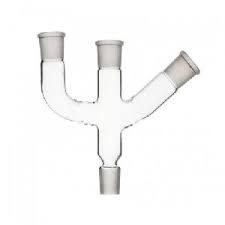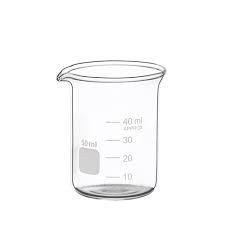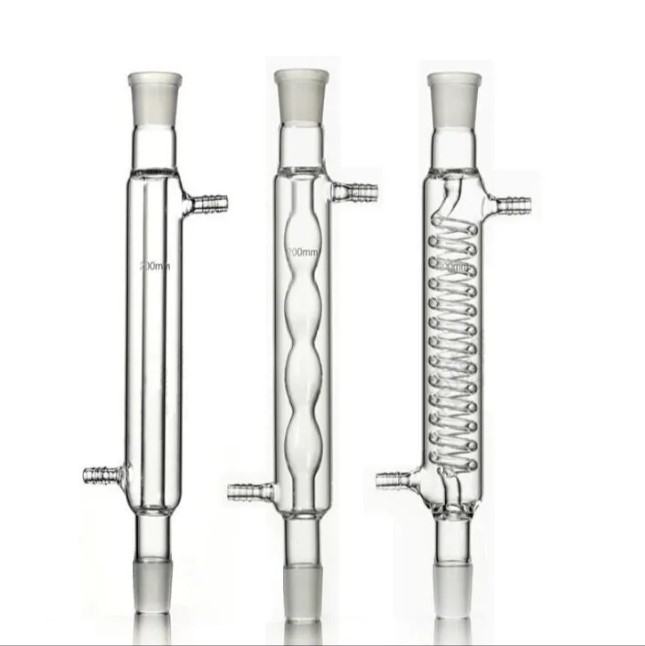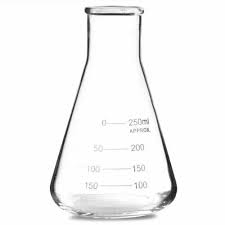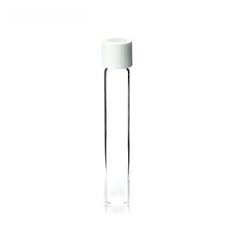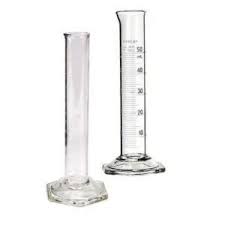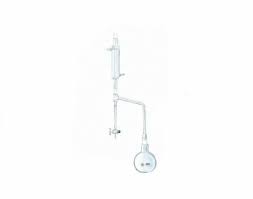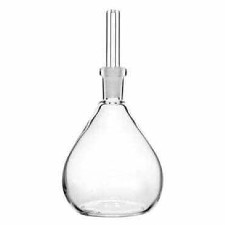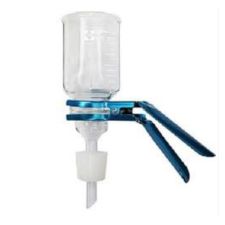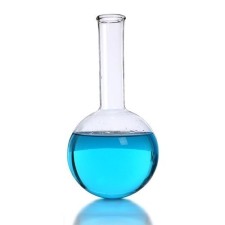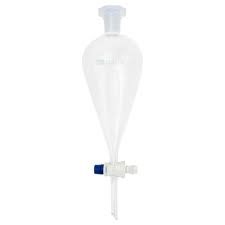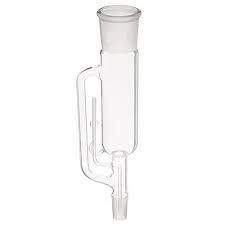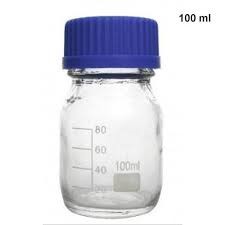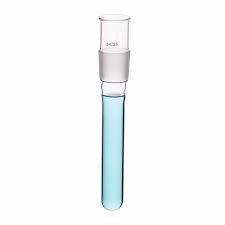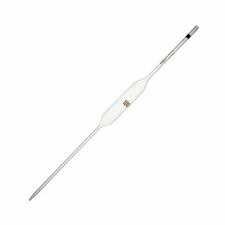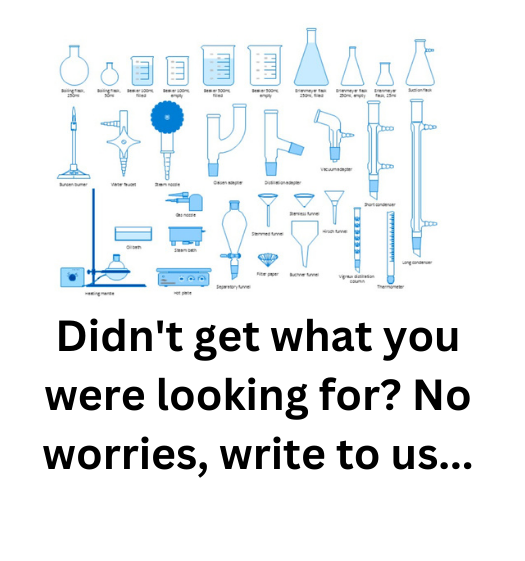Borosilico thermometer pockets are made from high-quality borosilicate glass, which is resistant to thermal shock and has a low coefficient of thermal expansion. This makes them ideal for use in a variety of laboratory applications, including measuring the temperature of liquids, gases, and solids.
Borosilico thermometer pockets are also available in a variety of sizes and shapes to meet the specific needs of different applications. Some common types of borosilicate thermometer pockets include:
Straight thermometer pockets: These pockets are typically used to measure the temperature of liquids in flasks, beakers, and other containers.
Angled thermometer pockets: These pockets are used to measure the temperature of liquids in vessels with narrow openings, such as test tubes and burets.
Well thermometer pockets: These pockets are used to measure the temperature of solids or gases in a closed system.
Borosilico thermometer pockets are an essential tool for any laboratory, and they are known for their durability, accuracy, and versatility.
Here are some of the benefits of using Borosilico thermometer pockets:
High quality and durability: Borosilicate glass is a very strong and durable material, making it ideal for use in laboratory applications. Borosilico thermometer pockets are resistant to thermal shock, chemicals, and scratches.
Accurate temperature readings: Borosilicate glass has a low coefficient of thermal expansion, which means that it does not expand or contract very much when heated or cooled. This makes it ideal for use in thermometer pockets, as it ensures that the temperature readings are accurate.
Versatile: Borosilico thermometer pockets can be used to measure the temperature of a variety of substances, including liquids, gases, and solids. They are also available in a variety of sizes and shapes to meet the specific needs of different applications.
If you are looking for high-quality, durable, and accurate thermometer pockets, Borosilico is the leading manufacturer of borosilicate glass laboratory products.
Borosilico manufactures high-quality borosilicate glass reagent bottles, which are essential tools for a variety of laboratory applications, including:
Storing and transporting reagents
Mixing and preparing solutions
Dispensing reagents
Disposing of waste reagents
Types of borosilicate glass reagent bottles
Borosilicate glass reagent bottles are available in a variety of types, including:
Plain reagent bottles: These bottles have a simple design with a wide mouth and a screw cap. They are typically used for general laboratory use.
Graduated reagent bottles: These bottles have a graduated scale on the side, which allows for easy measurement of the volume of liquid in the bottle. They are typically used for preparing and dispensing solutions.
Narrow-mouth reagent bottles: These bottles have a narrow mouth, which helps to prevent evaporation of liquids. They are typically used for storing and transporting reagents.
Wide-mouth reagent bottles: These bottles have a wide mouth, which makes them easy to fill and clean. They are typically used for mixing and preparing solutions.
Dropper reagent bottles: These bottles have a dropper cap, which allows for easy dispensing of small volumes of liquid. They are typically used for dispensing reagents or for adding reagents to test tubes and other glassware.
Uses of borosilicate glass reagent bottles*
Borosilicate glass reagent bottles are used in a variety of laboratory applications, including:
Chemistry: Reagent bottles are used in chemistry to store and transport reagents, mix and prepare solutions, dispense reagents, and dispose of waste reagents.
Biology: Reagent bottles are used in biology to store and transport reagents, mix and prepare solutions, dispense reagents, and dispose of waste reagents.
Pharmacology: Reagent bottles are used in pharmacology to store and transport reagents, mix and prepare drug solutions, dispense drug solutions, and dispose of waste drug solutions.
Environmental science: Reagent bottles are used in environmental science to store and transport reagents, mix and prepare solutions, dispense reagents, and dispose of waste reagents.
Food and beverage science: Reagent bottles are used in food and beverage science to store and transport reagents, mix and prepare solutions, dispense reagents, and dispose of waste reagents.
Benefits of using borosilicate glass reagent bottles
Borosilicate glass reagent bottles offer a number of benefits, including:
High quality and durability: Borosilicate glass is a high-quality material that is resistant to thermal shock and chemicals. This makes borosilicate glass reagent bottles ideal for use in demanding laboratory applications.
Chemical resistance: Borosilicate glass is resistant to a wide range of chemicals, making it safe for storing and transporting a variety of reagents.
Transparency: Borosilicate glass is transparent, which allows for easy visualization of the contents of the bottle.
Sterilizable: Borosilicate glass reagent bottles can be sterilized using a variety of methods, such as autoclaving and dry heat.
Affordable: Borosilicate glass reagent bottles are relatively affordable, making them a cost-effective option for many laboratory applications.
If you are looking for high-quality, durable, chemically resistant, transparent, sterilizable, and affordable reagent bottles, borosilicate glass reagent bottles are the best choice. Borosilico is a leading manufacturer of borosilicate glass reagent bottles, and their products are used by laboratories around the world.
Borosilico manufactures high-quality borosilicate glass filter crucibles, which are essential tools for a variety of laboratory applications, including:
Filtering solids from liquids:* Filter crucibles are used to filter solids from liquids to produce a clear filtrate.
Precipitating solids: Filter crucibles can be used to precipitate solids from solutions.
Drying solids: Filter crucibles can be used to dry solids.
Storing solids: Filter crucibles can be used to store solids.
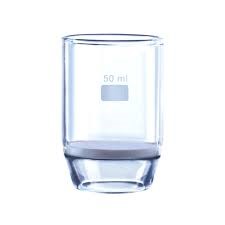
Types of borosilicate glass filter crucibles
Borosilicate glass filter crucibles are available in a variety of types, including:
Plain filter crucibles: These crucibles have a simple design with a flat bottom and a cylindrical body.
Sintered glass filter crucibles: These crucibles have a porous glass disk at the bottom, which allows liquids to pass through while trapping solids.
Gooch crucibles: These crucibles have a porous glass mat at the bottom, which allows liquids to pass through while trapping solids.
Mullite crucibles: These crucibles are made of mullite, a ceramic material that is resistant to high temperatures. Mullite crucibles are typically used for high-temperature filtration applications.
Uses of borosilicate glass filter crucibles
Borosilicate glass filter crucibles are used in a variety of laboratory applications, including:
Chemistry: Filter crucibles are used in chemistry to filter solutions, precipitate solids, and dry solids.
Biology: Filter crucibles are used in biology to filter cell cultures, precipitate proteins, and dry samples.
Pharmacology: Filter crucibles are used in pharmacology to filter drug solutions, precipitate drugs, and dry drug samples.
Environmental science: Filter crucibles are used in environmental science to filter water and soil samples, precipitate pollutants, and dry samples for analysis.
Food and beverage science: Filter crucibles are used in food and beverage science to filter food and beverage samples, precipitate food additives, and dry samples for analysis.
Benefits of using borosilicate glass filter crucibles
Borosilicate glass filter crucibles offer a number of benefits, including:
High quality and durability: Borosilicate glass is a high-quality material that is resistant to thermal shock and chemicals. This makes borosilicate glass filter crucibles ideal for use in demanding laboratory applications.
Chemical resistance: Borosilicate glass is resistant to a wide range of chemicals, making it ideal for use with a variety of different substances.
Transparency: Borosilicate glass is transparent, which allows for easy visualization of solids and liquids.
Versatility: Borosilicate glass filter crucibles are available in a variety of types to meet the specific needs of different applications.
Easy to clean: Borosilicate glass filter crucibles are easy to clean and can be reused many times.
If you are looking for high-quality, durable, chemically resistant, transparent, versatile, and easy-to-clean filter crucibles, borosilicate glass filter crucibles are the best choice. Borosilico is a leading manufacturer of borosilicate glass filter crucibles, and their products are used by laboratories around the world.
Borosilico manufactures high-quality borosilicate glass extractors, which are essential tools for a variety of laboratory applications, including:
Solid-liquid extraction: Extractors are used to separate a solute from a solvent by selectively dissolving the solute in a different solvent.
Liquid-liquid extraction: Extractors are used to separate two immiscible liquids by selectively transferring one liquid from one phase to another.
Soxhlet extraction:Extractors are used to extract a solute from a solid by repeatedly washing the solid with a solvent.
Types of borosilicate glass extractors
Borosilicate glass extractors are available in a variety of types, including:
Simple extractors: These extractors have a simple design with two chambers separated by a porous disk or membrane. The solvent is placed in the upper chamber, and the sample is placed in the lower chamber. The solvent is then allowed to flow through the porous disk or membrane, extracting the solute from the sample.
Soxhlet extractors: These extractors are used for continuous extraction of a solute from a solid. The sample is placed in a thimble that is suspended above a solvent reservoir. The solvent is heated, vaporized, and condensed onto the sample. The condensed solvent then drips back into the solvent reservoir, carrying the extracted solute with it.
Rotary evaporators: These extractors are used to evaporate solvents from solutions under reduced pressure. This allows for the solvent to be evaporated at a lower temperature, which helps to preserve the sample.
Uses of borosilicate glass extractors
Borosilicate glass extractors are used in a variety of laboratory applications, including:
Chemistry: Extractors are used in chemistry to extract solutes from solutions, such as extracting caffeine from coffee beans or extracting lipids from plant material.
Biology: Extractors are used in biology to extract DNA, RNA, and proteins from cells and tissues.
Pharmacology: Extractors are used in pharmacology to extract drugs from plant material or other sources.
Environmental science:* Extractors are used in environmental science to extract pollutants from water and soil samples.
Food and beverage science:* Extractors are used in food and beverage science to extract flavors and aromas from food and beverage products.
Benefits of using borosilicate glass extractors
Borosilicate glass extractors offer a number of benefits, including:
High quality and durability: Borosilicate glass is a high-quality material that is resistant to thermal shock and chemicals. This makes borosilicate glass extractors ideal for use in demanding laboratory applications.
Chemical resistance: Borosilicate glass is resistant to a wide range of chemicals, making it ideal for use with a variety of different substances.
Transparency: Borosilicate glass is transparent, which allows for easy visualization of the sample and the extraction process.
Versatility: Borosilicate glass extractors are available in a variety of types to meet the specific needs of different applications.
Easy to clean: Borosilicate glass extractors are easy to clean and can be reused many times.
If you are looking for high-quality, durable, chemically resistant, transparent, versatile, and easy-to-clean extractors, borosilicate glass extractors are the best choice. Borosilico is a leading manufacturer of borosilicate glass extractors, and their products are used by laboratories around the world.
Borosilico manufactures high-quality borosilicate glass test tubes, which are essential tools for a variety of laboratory applications, including:
Heating and boiling liquids
Conducting chemical reactions
Mixing and storing solutions
Testing materials
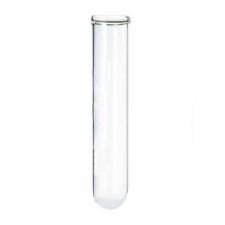
Types of borosilicate glass test tubes
Borosilicate glass test tubes are available in a variety of types, including:
Plain test tubes: These tubes have a simple, cylindrical design with a flat bottom and a rounded top.
Rimmed test tubes: These tubes have a rim at the top, which helps to prevent liquids from spilling.
Screw cap test tubes: These tubes have screw caps, which provide a tight seal and prevent evaporation of liquids.
Conical bottom test tubes: These tubes have a conical bottom, which allows for easy centrifugation of samples.
Culture tubes: These tubes have a long, narrow neck and a flat bottom, and are typically used for growing and maintaining cell cultures.
Uses of borosilicate glass test tubes
Borosilicate glass test tubes are used in a variety of laboratory applications, including:
Chemistry: Test tubes are used in chemistry to heat and boil liquids, conduct chemical reactions, mix and store solutions, and test materials.
Biology: Test tubes are used in biology to mix and store solutions, culture cells and microorganisms, and prepare samples for analysis.
Pharmacology: Test tubes are used in pharmacology to mix and store drug solutions, prepare samples for analysis, and conduct drug screening assays.
Environmental science: Test tubes are used in environmental science to collect and store samples, prepare samples for analysis, and conduct environmental monitoring tests.
Food and beverage science: Test tubes are used in food and beverage science to collect and store samples, prepare samples for analysis, and conduct food and beverage safety tests.
Benefits of using borosilicate glass test tubes
Borosilicate glass test tubes offer a number of benefits, including:
High quality and durability: Borosilicate glass is a high-quality material that is resistant to thermal shock and chemicals. This makes borosilicate glass test tubes ideal for use in demanding laboratory applications.
Transparency: Borosilicate glass is transparent, which allows for easy visualization of samples and reactions.
Sterilizable: Borosilicate glass test tubes can be sterilized using a variety of methods, such as autoclaving and dry heat.
Affordable: Borosilicate glass test tubes are relatively affordable, making them a cost-effective option for many laboratory applications.
If you are looking for high-quality, durable, transparent, sterilizable, and affordable test tubes, borosilicate glass test tubes are the best choice. Borosilico is a leading manufacturer of borosilicate glass test tubes, and their products are used by laboratories around the world.
Borosilico manufactures high-quality borosilicate glass pipettes, which are essential tools for a variety of laboratory applications, including:
Measuring and dispensing volumes of liquid
Transferring liquids from one container to another
Mixing and mixing solutions
Sampling liquids for analysis
Types of borosilicate glass pipettes
Borosilicate glass pipettes are available in a variety of types, including:
Volumetric pipettes: These pipettes are designed to measure and dispense a precise volume of liquid. They are typically used in analytical chemistry and other applications where accurate volume measurement is critical.
Graduated pipettes: These pipettes are designed to measure and dispense volumes of liquid in a graduated scale. They are typically used in general laboratory work where precise volume measurement is not required.
Serological pipettes:* These pipettes are designed to transfer liquids from one container to another. They have a long, thin neck and a bulb at the top. The bulb is used to draw up the liquid, and the neck is used to dispense the liquid.
Transfer pipettes: These pipettes are designed to transfer small volumes of liquid. They have a short, wide neck and a bulb at the top. The bulb is used to draw up the liquid, and the neck is used to dispense the liquid.
Pasteur pipettes: These pipettes are small, disposable pipettes that are used to transfer small volumes of liquid. They are typically used in microbiology and other applications where sterility is important.
Uses of borosilicate glass pipettes
Borosilicate glass pipettes are used in a variety of laboratory applications, including:
Chemistry: Pipettes are used in chemistry to measure and dispense volumes of liquid for chemical reactions, titrations, and other analytical procedures.
Biology: Pipettes are used in biology to measure and dispense volumes of liquid for cell culture, DNA and RNA extraction, and other biological experiments.
Pharmacology: Pipettes are used in pharmacology to measure and dispense volumes of liquid for drug preparation and testing.
Environmental science: Pipettes are used in environmental science to measure and dispense volumes of liquid for water and soil sampling and analysis.
Food and beverage science: Pipettes are used in food and beverage science to measure and dispense volumes of liquid for food and beverage sampling and analysis.
Benefits of using borosilicate glass pipettes
Borosilicate glass pipettes offer a number of benefits, including:
High quality and durability: Borosilicate glass is a high-quality material that is resistant to thermal shock and chemicals. This makes borosilicate glass pipettes ideal for use in demanding laboratory applications.
Accuracy: Volumetric pipettes are designed to deliver accurate volumes of liquid, making them ideal for analytical chemistry and other applications where precise volume measurement is critical.
Precision: Graduated pipettes are designed to measure and dispense volumes of liquid in a graduated scale, making them ideal for general laboratory work where precise volume measurement is not required.
Versatility: Borosilicate glass pipettes are available in a variety of types to meet the specific needs of different applications.
Sterilizable: Borosilicate glass pipettes can be sterilized using a variety of methods, such as autoclaving and dry heat.
If you are looking for high-quality, durable, accurate, precise, versatile, and sterilizable pipettes, borosilicate glass pipettes are the best choice. Borosilico is a leading manufacturer of borosilicate glass pipettes, and their products are used by laboratories around the world.
Borosilicate glass distilling flasks are essential tools for distilling liquids. They are made from high-quality borosilicate glass, which is resistant to thermal shock and chemicals. This makes them ideal for use in demanding laboratory and industrial applications.
Types of borosilicate glass distilling flasks
There are two main types of borosilicate glass distilling flasks:
Simple distilling flasks:These flasks are used for basic distillations, such as distilling water or ethanol. They have a single neck and a round bottom.
Fractional distilling flasks: These flasks are used for more complex distillations, such as distilling crude oil or essential oils. They have a long neck with a fractionating column attached. The fractionating column helps to separate the different components of the mixture based on their boiling points.
Uses of borosilicate glass distilling flasks
Borosilicate glass distilling flasks are used in a variety of applications, including:
Laboratory: Distilling flasks are used in laboratories to purify liquids, separate mixtures, and concentrate solutions.
Industry: Distilling flasks are used in industries such as food and beverage, chemical, and pharmaceutical to produce a variety of products, such as alcohol, essential oils, and purified water.
Research: Distilling flasks are used in research to develop new materials and processes.
Benefits of using borosilicate glass distilling flasks
Borosilicate glass distilling flasks offer a number of benefits, including:
High quality and durability: Borosilicate glass is a high-quality material that is resistant to thermal shock and chemicals. This makes borosilicate glass distilling flasks ideal for use in demanding laboratory and industrial applications.
Accuracy and precision: Borosilicate glass distilling flasks are designed to provide accurate and precise measurements. This is important for many laboratory and industrial applications.
Versatility: Borosilicate glass distilling flasks are available in a variety of sizes and types to meet the specific needs of different applications.
Reliability: Borosilicate glass distilling flasks are known for their reliability and long-term performance.
If you are looking for high-quality, durable, and accurate borosilicate glass distilling flasks, Borosilico is the leading manufacturer. Borosilico distilling flasks are used by laboratories and industries around the world for a variety of applications.
Borosilico manufactures high-quality borosilicate glass funnels, which are essential tools for a variety of laboratory applications, including:
Transferring liquids: Funnels are used to transfer liquids from one container to another safely and efficiently.
Separating solids from liquids: Funnels can be used to filter liquids to remove suspended solids.
Pouring liquids into containers with narrow openings: Funnels can be used to pour liquids into containers with narrow openings, such as beakers and flasks, without spilling.

Types of borosilicate glass funnels
Borosilicate glass funnels are available in a variety of types, including:
Plain funnels: These funnels have a simple design with a conical bowl and a long stem.
Powder funnels: These funnels have a wide bowl and a short stem, which makes them ideal for transferring powders.
Sintered glass funnels: These funnels have a porous glass disk at the bottom, which allows liquids to pass through while trapping solids.
Separating funnels: These funnels have a pear-shaped bowl and a stopcock at the bottom, which allows for the separation of two immiscible liquids.
Buchner funnels: These funnels have a flat bottom and a side arm, which is used to connect to a vacuum source. Buchner funnels are typically used for vacuum filtration of large volumes of liquid.
Uses of borosilicate glass funnels
Borosilicate glass funnels are used in a variety of laboratory applications, including:
Chemistry: Funnels are used in chemistry to transfer liquids, filter solutions, and pour liquids into containers with narrow openings.
Biology: Funnels are used in biology to filter cell cultures, transfer media, and pour liquids into Petri dishes and test tubes.
Pharmacology: Funnels are used in pharmacology to filter drug solutions and transfer them to vials and other containers.
Environmental science: Funnels are used in environmental science to filter water and soil samples and transfer them to containers for analysis.
Food and beverage science: Funnels are used in food and beverage science to filter food and beverage samples and transfer them to containers for analysis or processing.
Benefits of using borosilicate glass funnels
Borosilicate glass funnels offer a number of benefits, including:
High quality and durability: Borosilicate glass is a high-quality material that is resistant to thermal shock and chemicals. This makes borosilicate glass funnels ideal for use in demanding laboratory applications.
Transparency: Borosilicate glass is transparent, which allows for easy visualization of liquids and solids.
Versatility: Borosilicate glass funnels are available in a variety of types to meet the specific needs of different applications.
Easy to clean: Borosilicate glass funnels are easy to clean and can be reused many times.
If you are looking for high-quality, durable, transparent, versatile, and easy-to-clean funnels, borosilicate glass funnels are the best choice. Borosilico is a leading manufacturer of borosilicate glass funnels, and their products are used by laboratories around the world.
Borosilico manufactures high-quality borosilicate glass pycnometers, which are essential tools for measuring the density of liquids and solids. Pycnometers are used in a variety of applications, including:
Quality control: Pycnometers are used to ensure that the density of a product meets quality control specifications.
Angled thermometer pockets: These pockets are used to measure the temperature of liquids in vessels with narrow openings, such as test tubes and burets.
Well thermometer pockets: These pockets are used to measure the temperature of solids or gases in a closed system.
Borosilico thermometer pockets are an essential tool for any laboratory, and they are known for their durability, accuracy, and versatility.
Here are some of the benefits of using Borosilico thermometer pockets:
High quality and durability: Borosilico pycnometers are made from high-quality borosilicate glass, which is resistant to thermal shock, chemicals, and scratches.
Accurate measurements: Borosilico pycnometers are designed to provide accurate measurements of density.
Versatile: Borosilico pycnometers are available in a variety of types and sizes to meet the specific needs of different applications.
Reliable: Borosilico pycnometers are known for their reliability and long-term performance.
If you are looking for high-quality, durable, and accurate borosilicate glass pycnometers, Borosilico is the leading manufacturer.
Borosilico manufactures high-quality borosilicate glass condensers, which are essential tools for a variety of laboratory applications. Condensers are used to cool hot vapors, which can be used for a variety of purposes, including:
Distillation: Condensers are used to separate liquids from their vapors during distillation.
Reflux: Condensers are used to keep a liquid circulating in a closed system during reflux.
Cooling reactions: Condensers can be used to cool down reactions to prevent them from overheating.
Evaporation: Condensers can be used to concentrate solutions by evaporating the solvent.
Borosilicate glass condensers are ideal for these applications because they are resistant to thermal shock and have a low coefficient of thermal expansion. This means that they can withstand rapid changes in temperature without breaking. There are many different types of borosilicate glass condensers available, each with its own advantages and disadvantages. Some of the most common types include:
Liebig condenser: This is the simplest and most common type of condenser. It consists of a long, straight tube with a spiral coil inside.
Graham condenser: This condenser has two coils, which allows for more efficient cooling.
Thermosyphon condenser: This condenser uses the natural convection of hot and cold liquids to cool the vapors.
Air condenser: This condenser uses a stream of air to cool the vapors.
Fractionating column: This condenser is used to separate different components of a mixture by boiling point.
Borosilico offers a wide variety of borosilicate glass condensers to meet the specific needs of different laboratories.
Here are some of the benefits of using Borosilico borosilicate glass condensers:
High quality and durability: Borosilico condensers are made from high-quality borosilicate glass, which is resistant to thermal shock, chemicals, and scratches.
Efficient cooling: Borosilico condensers are designed to cool vapors efficiently, which can save time and energy.
Versatile: Borosilico condensers are available in a variety of types to meet the specific needs of different applications
Reliable: Borosilico condensers are known for their reliability and long-term performance.
If you are looking for high-quality, durable, and efficient borosilicate glass condensers, Borosilico is the leading manufacturer.
The borosilicate flask, specifically the Erlenmeyer flask, is a versatile laboratory tool with various beneficial uses. Here are a few benefits and common uses of these flasks:
Versatile Design:The conical shape of the Erlenmeyer flask allows for effective mixing and swirling of liquids without excessive splashing or loss of content. This makes it suitable for a wide range of applications.
Heat Resistant: Borosilicate glass, the material used in these flasks, is highly resistant to thermal stress. It can withstand rapid temperature changes without cracking, which is crucial for heating or cooling experiments.
Accuracy in Measurements: Erlenmeyer flasks often come with graduated markings, enabling precise volume measurements. This makes them particularly useful in titrations, dilutions, and preparation of solutions.
Covering and Collecting Gases: With a hollow stopper or rubber bung, the Erlenmeyer flask can be tightly sealed, allowing for controlled reactions that involve the production or release of gases. This is important in experiments where gas evolution needs to be monitored or trapped.
Easily Swirling and Mixing: Due to the narrow neck and conical shape, Erlenmeyer flasks can be easily swirled or mixed manually, facilitating the dissolution of solids, homogenization of solutions, or extraction processes in the laboratory.
Culturing Microorganisms: Erlenmeyer flasks, especially those with a wide mouth, are commonly used for culturing microorganisms such as bacteria, yeast, or fungi. The wide opening allows for better aeration and transfer of nutrients.
Chemical Reactions: These flasks are suitable for a variety of chemical reactions, including acid-base reactions, precipitation reactions, and redox reactions. They can be used for mixing reagents, monitoring reaction progress, and conducting small-scale reactions.
Remember to choose the appropriate flask size and mouth type based on the specific needs of your experiment.
Borosilico manufactures a wide range of high-quality borosilicate glass adapters, which are essential tools for connecting different pieces of laboratory glassware. Adapters are used in a variety of applications, including:
Distillation: Adapters are used to connect the distillation column to the condenser and the receiving flask.
Reflux: Adapters are used to connect the reflux condenser to the reaction flask.
Extraction: Adapters are used to connect the Soxhlet extractor to the solvent reservoir and the receiving flask.
Chromatography: Adapters are used to connect the chromatography column to the injector and the detector.
General laboratory use: Adapters can be used to connect a variety of different pieces of glassware, such as beakers, flasks, and test tubes.
Borosilico adapters are available in a variety of types, including:
Straight adapters: These adapters connect two pieces of glassware with the same joint size.
Reducing adapters: These adapters connect two pieces of glassware with different joint sizes.
Enlarging adapters: These adapters connect two pieces of glassware with the same joint size, but one piece of glassware has a larger diameter than the other.
Angle adapters: These adapters connect two pieces of glassware at an angle.
Y-adapters: These adapters connect three pieces of glassware together.
T-adapters: These adapters connect four pieces of glassware together.
Borosilico adapters are also available with a variety of different joint types, such as ball-and-socket joints, cone-and-socket joints, and spherical joints. This allows Borosilico adapters to be used with a wide variety of different pieces of laboratory glassware.
Here are some of the benefits of using Borosilico borosilicate glass adapters:
High quality and durability: Borosilico adapters are made from high-quality borosilicate glass, which is resistant to thermal shock and chemicals.
Accurate fit: Borosilico adapters are designed to fit tightly with laboratory glassware, which prevents leaks and accidents.
Versatile: Borosilico adapters are available in a variety of types and joint sizes to meet the specific needs of different applications.
Reliable: Borosilico adapters are known for their reliability and long-term performance.
If you are looking for high-quality, durable, and accurate borosilicate glass adapters, Borosilico is the leading manufacturer.
All our borosilicate glass beakers are specially engineered for heating liquids and are highly resistant to chemical attack. This makes them the perfect choice for a wide range of laboratory experiments, research, and industrial applications.
Choose from a variety of capacities to suit your specific requirements. Whether you need to measure small volumes or handle larger quantities, our beakers are designed to accommodate your needs.
Experience the durability, precision, and safety of our borosilicate glass beakers. Trust in their exceptional quality for your scientific endeavors.
Borosilico manufactures high-quality borosilicate glass culture tubes, which are essential tools for a variety of laboratory applications, including:
Tissue culture: Culture tubes are used to grow and maintain cells in vitro.
Microbiology: Culture tubes are used to culture bacteria and other microorganisms.
Molecular biology: Culture tubes are used to culture cells for molecular biology experiments, such as PCR and cloning.
Immunology: Culture tubes are used to culture cells for immunological experiments, such as ELISA and western blotting.
General laboratory use: Culture tubes can be used to store and transport a variety of different samples in the laboratory.
[Image of Borosilicate glass culture tubes]Types of borosilicate glass culture tubes
Borosilicate glass culture tubes are available in a variety of types, including:
Plain tubes: These tubes are the simplest type of culture tube and are typically used for general laboratory use.
Round-bottom tubes: These tubes have a round bottom, which makes them ideal for swirling and mixing samples.
Flat-bottom tubes: These tubes have a flat bottom, which makes them ideal for standing upright on a benchtop.
Serological pipette tubes: These tubes have a long thin neck and are typically used for pipetting solutions.
Conical tubes: These tubes have a conical shape, which makes them ideal for centrifugation.
Uses of borosilicate glass culture tubes
Borosilicate glass culture tubes can be used for a variety of different purposes, including:
Growing and maintaining cells: Culture tubes are used to grow and maintain cells in vitro for a variety of different applications, such as drug discovery, cell biology research, and tissue engineering.
Culturing bacteria and other microorganisms: Culture tubes are used to culture bacteria and other microorganisms for a variety of different applications, such as antibiotic testing, environmental monitoring, and food safety testing.
Carrying out molecular biology experiments: Culture tubes are used to carry out a variety of molecular biology experiments, such as PCR, cloning, and DNA sequencing.
Carrying out immunological experiments: Culture tubes are used to carry out a variety of immunological experiments, such as ELISA and western blotting.
Storing and transporting samples:* Culture tubes can be used to store and transport a variety of different samples in the laboratory, such as cells, bacteria, viruses, and chemicals.
Benefits of using borosilicate glass culture tubes
Borosilicate glass culture tubes offer a number of benefits, including:
High quality and durability: Borosilicate glass is a high-quality material that is resistant to thermal shock and chemicals. This makes borosilicate glass culture tubes ideal for use in demanding laboratory applications.
Transparency: Borosilicate glass is transparent, which allows for easy visualization of samples.
Sterilizable: Borosilicate glass culture tubes can be sterilized using a variety of methods, such as autoclaving and dry heat.
Cost-effective: Borosilicate glass culture tubes are relatively inexpensive, making them a cost-effective option for many laboratory applications.
If you are looking for high-quality, durable, and transparent culture tubes that are easy to sterilize and cost-effective, borosilicate glass culture tubes are the best choice. Borosilico is a leading manufacturer of borosilicate glass culture tubes, and their products are used by laboratories around the world.
Borosilico manufactures high-quality borosilicate glass filter holders, which are essential tools for a variety of laboratory filtration applications. Filter holders are used to support filter papers and other filtration media while they are being used to filter liquids or gases.
Types of borosilicate glass filter holders
Borosilicate glass filter holders are available in a variety of types, including:
Single-ring filter holders: These filter holders are the simplest type of filter holder and are typically used for general laboratory use.
Double-ring filter holders: These filter holders are more sturdy than single-ring filter holders and are typically used for more demanding applications, such as vacuum filtration.
Serological filter holders: These filter holders have a long, thin neck and are typically used for filtration of small volumes of liquid.
Buchner funnels: These filter holders are used for vacuum filtration of large volumes of liquid.
Gooch crucibles: These filter holders are used for filtration of solids from liquids.
Uses of borosilicate glass filter holders
Borosilicate glass filter holders are used for a variety of laboratory filtration applications, including:
Filtration of liquids: Filter holders are used to filter liquids to remove impurities, such as suspended solids and bacteria.
Filtration of gases: Filter holders are used to filter gases to remove impurities, such as dust and particulate matter.
Solid-liquid separation: Filter holders are used to separate solids from liquids, such as in the preparation of precipitates.
Chromatography: Filter holders are used in chromatography to separate different components of a mixture.
Precipitation reactions: Filter holders are used in precipitation reactions to collect the precipitate.
Benefits of using borosilicate glass filter holders
Borosilicate glass filter holders offer a number of benefits, including:
High quality and durability: Borosilicate glass is a high-quality material that is resistant to thermal shock and chemicals. This makes borosilicate glass filter holders ideal for use in demanding laboratory applications.
Sterilizable: Borosilicate glass filter holders can be sterilized using a variety of methods, such as autoclaving and dry heat.
Versatile: Borosilicate glass filter holders are available in a variety of types to meet the specific needs of different applications.
Easy to use: Borosilicate glass filter holders are typically easy to use and require minimal maintenance.
If you are looking for high-quality, durable, sterilizable, and versatile filter holders, borosilicate glass filter holders are the best choice. Borosilico is a leading manufacturer of borosilicate glass filter holders, and their products are used by laboratories around the world.
Borosilico manufactures high-quality borosilicate glass Florence flasks, which are essential tools for a variety of laboratory applications, including:
Heating and boiling liquids: Florence flasks are designed for safe and efficient heating and boiling of liquids. Their round bottom and long neck help to distribute heat evenly and prevent splashing.
Distillation: Florence flasks are used in distillation to separate liquids from their impurities.
Reflux: Florence flasks are used in reflux to continuously heat and condense a liquid in a closed system.
Extraction: Florence flasks are used in extraction to separate a substance from a mixture.
General laboratory use: Florence flasks can be used for a variety of general laboratory tasks, such as storing and transporting liquids, mixing solutions, and preparing reactions.
Types of borosilicate glass Florence flasks
Borosilicate glass Florence flasks are available in a variety of types, including:
Plain Florence flasks: These flasks have a simple round bottom and long neck.
Baffled Florence flasks: These flasks have internal baffles that help to prevent splashing and improve mixing.
Jacketed Florence flasks: These flasks have a double layer of glass with a vacuum in between, which provides insulation and prevents heat loss.
Florence flasks with side arms: These flasks have a side arm that can be used to connect to other laboratory glassware, such as condensers and thermometers.
Florence flasks with thermometers: These flasks have a built-in thermometer that allows for temperature monitoring during heating and boiling.
Uses of borosilicate glass Florence flasks
Borosilicate glass Florence flasks are used in a variety of laboratory applications, including:
Chemistry: Florence flasks are used in chemistry to heat and boil liquids, carry out distillations, and reflux reactions.
Biology: Florence flasks are used in biology to culture cells and microorganisms, prepare solutions, and carry out experiments.
Pharmacology: Florence flasks are used in pharmacology to prepare and test drugs.
Environmental science: Florence flasks are used in environmental science to analyze samples of water, air, and soil.
Food and beverage science: Florence flasks are used in food and beverage science to develop and test new products.
Benefits of using borosilicate glass Florence flasks
Borosilicate glass Florence flasks offer a number of benefits, including:
High quality and durability: Borosilicate glass is a high-quality material that is resistant to thermal shock and chemicals. This makes borosilicate glass Florence flasks ideal for use in demanding laboratory applications.
Chemical resistance: Borosilicate glass is resistant to a wide range of chemicals, making it ideal for use with a variety of different substances.
Transparency: Borosilicate glass is transparent, which allows for easy visualization of samples and reactions.
Versatility: Borosilicate glass Florence flasks are available in a variety of types and sizes to meet the specific needs of different applications.
If you are looking for high-quality, durable, chemically resistant, transparent, and versatile Florence flasks, borosilicate glass Florence flasks are the best choice. Borosilico is a leading manufacturer of borosilicate glass Florence flasks, and their products are used by laboratories around the world.
Borosilico manufactures high-quality borosilicate glass petri dishes, which are essential tools for a variety of laboratory applications, including:
Microbiology: Petri dishes are used to culture bacteria and other microorganisms.
Cell biology: Petri dishes are used to culture cells and tissues.
Molecular biology: Petri dishes are used to carry out molecular biology experiments, such as PCR and cloning.
Immunology: Petri dishes are used to carry out immunological experiments, such as ELISA and western blotting.
General laboratory use: Petri dishes can be used to store and transport a variety of different samples in the laboratory.
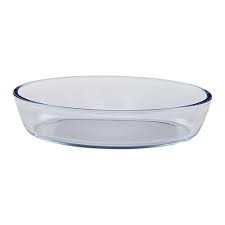
Types of borosilicate glass petri dishes
Borosilicate glass petri dishes are available in a variety of types, including:
Plain petri dishes: These are the simplest type of petri dish and are typically used for general laboratory use.
Sterile petri dishes: These petri dishes have been sterilized to prevent contamination.
Conical bottom petri dishes: These petri dishes have a conical bottom, which makes them ideal for centrifugation.
Gas-permeable petri dishes: These petri dishes have a gas-permeable membrane, which allows gases to exchange between the inside and outside of the petri dish.
Microtiter petri dishes: These petri dishes are smaller than standard petri dishes and are typically used for cell culture and molecular biology applications.
Uses of borosilicate glass petri dishes
Borosilicate glass petri dishes can be used for a variety of different purposes, including:
Growing and maintaining bacteria and other microorganisms: Petri dishes are used to grow and maintain bacteria and other microorganisms for a variety of different applications, such as antibiotic testing, environmental monitoring, and food safety testing.
Culturing cells and tissues: Petri dishes are used to culture cells and tissues for a variety of different applications, such as drug discovery, cell biology research, and tissue engineering.
Carrying out molecular biology experiments: Petri dishes are used to carry out a variety of molecular biology experiments, such as PCR, cloning, and DNA sequencing.
Carrying out immunological experiments: Petri dishes are used to carry out a variety of immunological experiments, such as ELISA and western blotting.
Storing and transporting samples: Petri dishes can be used to store and transport a variety of different samples in the laboratory, such as cells, bacteria, viruses, and chemicals.
Benefits of using borosilicate glass petri dishes
Borosilicate glass petri dishes offer a number of benefits, including:
High quality and durability: Borosilicate glass is a high-quality material that is resistant to thermal shock and chemicals. This makes borosilicate glass petri dishes ideal for use in demanding laboratory applications.
Transparency: Borosilicate glass is transparent, which allows for easy visualization of samples.
Sterilizable: Borosilicate glass petri dishes can be sterilized using a variety of methods, such as autoclaving and dry heat.
Cost-effective: Borosilicate glass petri dishes are relatively inexpensive, making them a cost-effective option for many laboratory applications.
If you are looking for high-quality, durable, transparent, sterilizable, and cost-effective petri dishes, borosilicate glass petri dishes are the best choice. Borosilico is a leading manufacturer of borosilicate glass petri dishes, and their products are used by laboratories around the world.
Borosilico manufactures high-quality borosilicate glass burettes, which are essential tools for a variety of laboratory titrations. Burettes are graduated glassware that is used to deliver a known volume of liquid.
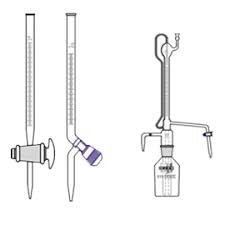
Types of borosilicate glass burettes
Borosilicate glass burettes are available in a variety of types, including:
Class A burettes: These burettes are the most accurate type of burette and are used for demanding applications, such as analytical chemistry.
Class B burettes: These burettes are less accurate than class A burettes, but they are more affordable. They are typically used for general laboratory use.
Microburettes: These burettes are used to deliver very small volumes of liquid, typically less than 1 mL.
Automatic burettes: These burettes are controlled by a motor and can be used to deliver a precise volume of liquid at a set rate.
Uses of borosilicate glass burettes
Borosilicate glass burettes are used for a variety of laboratory titrations, including:
Acid-base titrations: These titrations are used to determine the concentration of an acid or base.
Redox titrations: These titrations are used to determine the concentration of a redox reagent.
Complexometric titrations: These titrations are used to determine the concentration of a metal ion.
Spectrophotometric titrations: These titrations are used to determine the concentration of a compound by measuring its absorbance at a specific wavelength.
Benefits of using borosilicate glass burettes
Borosilicate glass burettes offer a number of benefits, including:
High quality and durability: Borosilicate glass is a high-quality material that is resistant to thermal shock and chemicals. This makes borosilicate glass burettes ideal for use in demanding laboratory applications.
Accuracy and precision: Borosilicate glass burettes are designed to deliver accurate and precise volumes of liquid. This is important for many laboratory titrations.
Versatility: Borosilicate glass burettes are available in a variety of types to meet the specific needs of different applications.
Efficiency: Burettes can be used to deliver a precise volume of liquid quickly and easily.
If you are looking for high-quality, durable, accurate, and precise burettes, borosilicate glass burettes are the best choice. Borosilico is a leading manufacturer of borosilicate glass burettes, and their products are used by laboratories around the world.

